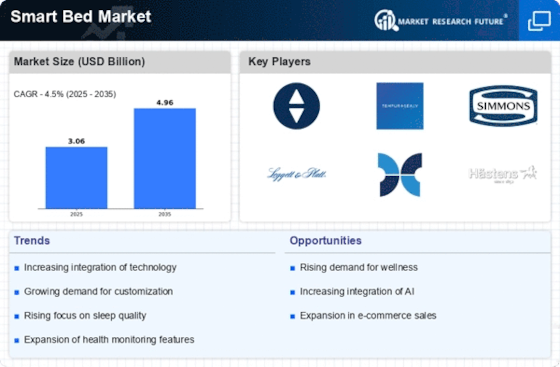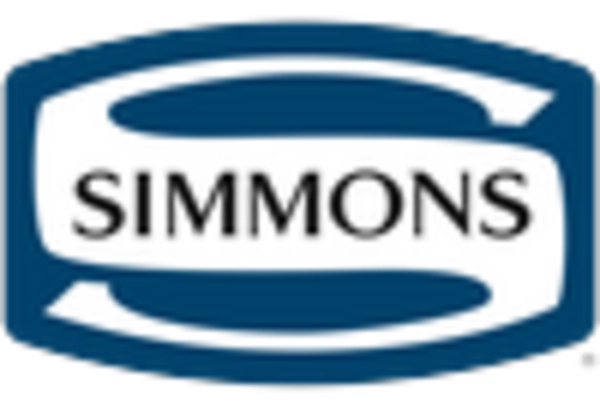Market Analysis
In-depth Analysis of Smart Bed Market Industry Landscape
The smart bed market is experiencing dynamic growth driven by technological advancements, changing consumer preferences, and a growing awareness of the importance of sleep health. In recent years, there has been a notable shift in the way consumers approach their sleep routines, with an increasing focus on utilizing technology to enhance the overall sleep experience. Smart beds, equipped with sensors, connectivity features, and adjustable settings, have emerged as a popular choice for individuals seeking personalized and data-driven solutions for better sleep.
One of the key drivers shaping the dynamics of the smart bed market is the rising awareness of the impact of quality sleep on overall well-being. Consumers are increasingly recognizing the importance of tracking and understanding their sleep patterns to address issues such as insomnia, sleep apnea, and other sleep-related disorders. Smart beds offer features like sleep tracking, real-time monitoring, and personalized recommendations to help users optimize their sleep quality and duration.
Technological innovation is at the forefront of the smart bed market dynamics. Advanced features such as adjustable firmness, temperature control, and anti-snore functionalities are becoming standard offerings. Integration with smart home systems allows users to control their beds through voice commands or mobile applications. The development of smart mattress materials and fabrics that respond to body temperature and provide enhanced comfort further contributes to the technological evolution of smart beds.
Changing consumer lifestyles and an increased focus on wellness contribute to the market dynamics of smart beds. The demand for products that promote a holistic approach to health, including sleep quality, has driven the adoption of smart beds as an essential component of a well-rounded wellness routine. Manufacturers are responding to this trend by designing beds that offer not only comfort but also therapeutic and recovery-oriented features.
E-commerce plays a significant role in shaping the distribution and accessibility of smart beds. Online platforms allow consumers to research, compare, and purchase smart beds from the comfort of their homes. The direct-to-consumer model has gained prominence, with manufacturers bypassing traditional retail channels and reaching consumers directly. This shift in distribution channels has reshaped the competitive landscape and provided consumers with a wider range of options.
Globalization has also impacted the smart bed market dynamics, with manufacturers catering to diverse consumer preferences and cultural nuances. The customization options offered by smart beds, such as personalized sleep profiles and adjustable settings for couples with different preferences, appeal to a global audience with varied sleep habits and needs.
Consumer concerns about data privacy and security have emerged as factors influencing the market dynamics of smart beds. As these beds collect and analyze sensitive sleep data, manufacturers need to prioritize robust cybersecurity measures to gain and maintain consumer trust. Addressing these concerns becomes crucial in ensuring the continued growth and adoption of smart beds in the market.


















Leave a Comment